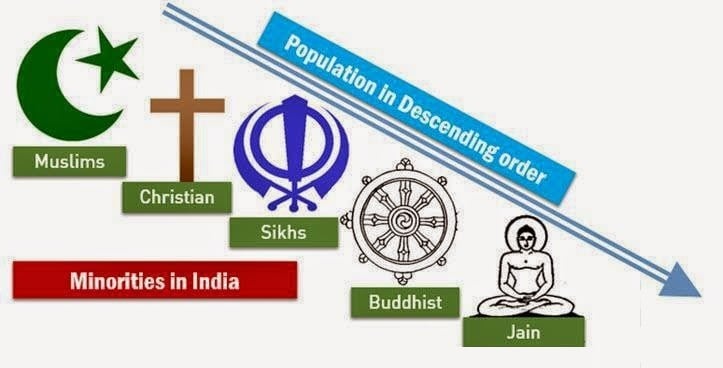Title: Minority Concerns in India: A Comprehensive Overview
India, known for its rich cultural diversity, is home to various religious and ethnic communities. While the majority Hindu population coexists with multiple minority groups, there have been instances that raise concerns about the well-being and rights of these minorities.
1. **Constitutional Safeguards:**
India’s Constitution guarantees fundamental rights to all its citizens, irrespective of their religious or ethnic background. Article 15 prohibits discrimination on grounds of religion, race, caste, sex, or place of birth. However, the effective implementation of these safeguards remains a subject of debate.
2. **Communal Violence:**
Communal tensions and occasional outbreaks of violence between religious communities have been reported. Incidents of communal violence can lead to loss of life, property, and displacement, affecting minority communities disproportionately.
3. **Religious Freedom:**
While the Constitution upholds the right to freedom of religion, there have been concerns about instances where religious minorities face discrimination or restrictions in practicing their faith. Incidents of forced conversions and attacks on religious institutions have been reported.
4. **Legal Frameworks:**
Several legal frameworks are in place to protect minority rights, including the National Commission for Minorities Act. However, the effectiveness of these mechanisms in addressing grievances and ensuring justice is a matter of ongoing scrutiny.
5. **Reservation Policies:**
Reservation policies in education and employment aim to uplift disadvantaged sections, including religious minorities. However, the successful implementation and impact of these policies are debated, with concerns about adequate representation and equitable distribution of benefits.
6. **Identity Politics:**
Instances of identity politics, where political narratives are shaped around religious or ethnic identities, can sometimes exacerbate tensions. Politicization of religious differences can contribute to social divisions.
7. **Socio-Economic Disparities:**
Minorities, particularly Muslims and Christians, often face socio-economic disparities. Access to education, healthcare, and economic opportunities can be limited, contributing to a sense of marginalization.
8. **Citizenship Debates:**
Recent debates around citizenship, such as the Citizenship Amendment Act (CAA), have sparked concerns about potential discrimination based on religion. Critics argue that these policies may adversely impact certain minority groups.
9. **Security Concerns:**
Security challenges, including terrorism, have sometimes led to profiling of specific communities. Striking a balance between national security measures and protecting minority rights remains a delicate challenge.
10. **International Perceptions:**
India’s treatment of religious minorities occasionally draws international attention and criticism. Balancing national sovereignty with global expectations is an ongoing diplomatic challenge.
In conclusion, while India celebrates its diversity, it is essential to address the concerns and challenges faced by religious and ethnic minorities. Striving for inclusive policies, effective implementation of constitutional safeguards, and fostering social harmony are critical steps toward ensuring that all citizens, regardless of their background, can fully participate in the nation’s progress. Constant vigilance, open dialogue, and policy reforms are key components of a vibrant and inclusive democracy.
